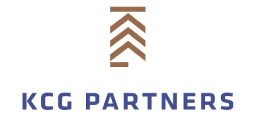The Hungarian tax authority published its annual tax audit guidelines with the clear aim of supporting compliant taxpayers and take firm actions against intentional tax evasion by utilizing additional data sources in the process as well.
The tax audit plan sets out four main focus points. First is the sectors and activities with significant budgetary risks: e-commerce and trade of computer hardware remain hot topics and construction sector, tourism and hospitality, food industry and agricultural products, inter alia, are expected to be under scrutiny this year.
Secondly, extension of online invoice data disclosure obligation as of 1 January 2021 and former abolition of reporting thresholds enables full access to taxpayers’ invoice data and significantly enhances the potential of data analysis. The tax authority has an effective measure to identify and uncover (fraudulent) billing chains and to prevent the loss of budget revenues. A key opportunity and task is to utilize the data received in the framework of the international exchange of information on cross-border tax structures as of 1 July 2020. In addition, data from the “Employee Alert” system should be a useful asset in order to fight fraudulent employment, while bogus (self-) employment of KATA taxpayers will be closely monitored due to the changes applicable from 1 January 2021.
In addition, in order to secure budget revenues and due to their economic weight, auditing large taxpayers remains a key element of the Hungarian tax authority’s plan with additional emphasis on data gained from international exchange of information on cross-borders structures and transactions.
Finally, to support voluntary compliance by taxpayers, the tax authority intends to use so called supporting procedures (in the case of minor discrepancies) and compliance audits (for more significant discrepancies) without sanctions, at first.
By Balint Zsoldos, Head of Tax, KCG Partners Law Firm


